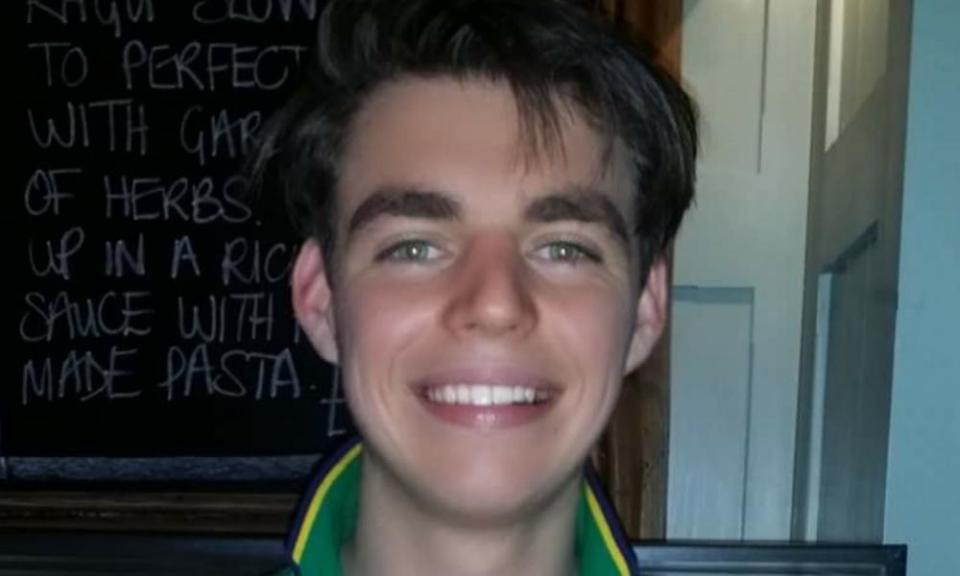Teenager's death after being given antipsychotic was 'potentially avoidable'

The death of a teenager who was given antipsychotic medication though he and his family warned that the drug might cause him serious harm could have been avoided, an independent review has concluded.
Talented athlete Oliver McGowan, who had mild autism and epilepsy, died at Southmead hospital in Bristol aged 18 after being given a drug for schizophrenia and bipolar disorder though he did not have those conditions or any mental illness.
His family say they and their son implored doctors not to administer olanzapine because he had reacted badly to it in the past and Oliver told those treating him: “Please do not give me antipsychotics, I don’t like them, they mess with my brain.” But the teenager was given the drug and suffered a fatal brain injury.
An independent review published on Tuesday concluded that Oliver’s death was “potentially avoidable”.
The review said there was “a body of written evidence” and verbal requests from Oliver and his parents not to prescribe olanzapine.
It added: “There was no substantial evidence to illustrate that consideration had been given to explore alternatives to antipsychotic medication.”
The review panel made a string of recommendations and called for clinical commissioning groups across England to review their own processes, taking into account lessons from Oliver’s case.
Fiona Richie, chair of the independent review, thanked Oliver’s parents, Paula and Tom, for their “tireless support” and said it was hoped recommendations for national changes to prevent future deaths would be part of their son’s legacy.
Paula McGowan said: “We have always known that Oliver’s death was avoidable. He was a healthy, fit teenage boy who walked into Southmead hospital having absence-type seizures and left in the back of a coroner’s van.
“It is our opinion that Oliver died as a result of the combined ignorance and arrogance of doctors who were treating him. Doctors refused to listen.
“The medical system failed to understand how his autism, epilepsy and learning disability affected him and so their care failed him.”
His mother added: “Oliver’s life was important. He was productive, playing football for England FA development squads; he was in training to become a future Paralympian. He had passed his GCSE and BTec exams and was attending college. Oliver had a right to a life, his life mattered.”
Oliver’s parents called for the NHS in England to allocate a senior named person to track progress on all the recommendations made.
An inquest in 2018 ruled that the use of olanzapine was appropriate but the McGowans have now called for a fresh inquest, saying the first was “deeply flawed”. Police are also investigating Oliver’s death.
The North Bristol NHS trust chief executive, Andrea Young, said: “The staff who cared for Oliver did their very best in managing his complex needs as his health was deteriorating. They made decisions, as they do on a daily basis, to weigh up all the risks and sought to give him the best possible treatment.
“Sadly Oliver died in our hospital and we are sorry for his loss. We are determined to offer exceptional care for individuals with learning disabilities and autism and we have significantly improved training and support for staff. We are committed to continue learning and will act on this report.”

 Yahoo Finance
Yahoo Finance 